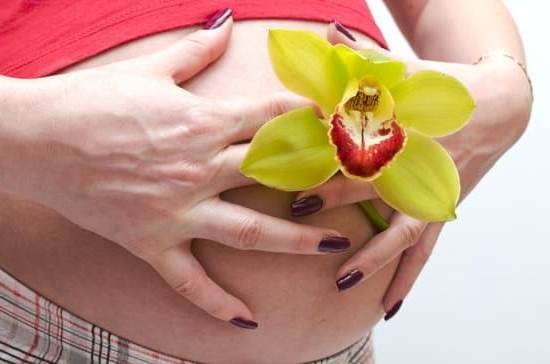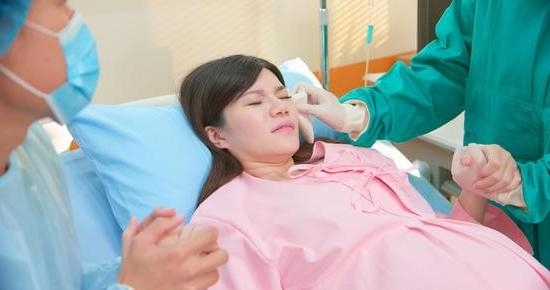Is vaginal itching a sign of pregnancy? Pregnancy is a miraculous journey filled with various physical and emotional changes. Many women experience a range of symptoms that indicate they may be expecting. From morning sickness to fatigue, the body undergoes significant transformations during this time. One lesser-known symptom that can arise is vaginal itching, which may cause concern for expectant mothers.
Vaginal itching during pregnancy can be attributed to a variety of factors, including hormonal changes, increased blood flow to the pelvic area, and heightened sensitivity in the vaginal region. It is essential to understand the potential causes behind this discomfort and how it differs from other common signs of pregnancy. Distinguishing between normal vaginal changes and symptoms that warrant medical attention is crucial for maintaining maternal health.
In this article, we will delve into the complexities of vaginal itching as a potential sign of pregnancy. We will explore the link between hormonal fluctuations and this discomfort, as well as discuss when it may signal a more serious issue that requires intervention.
Additionally, we will provide insight into safe and effective treatment options for managing vaginal itching while pregnant, along with helpful tips on prevention. It is important for expectant mothers to prioritize their well-being during this delicate time by seeking guidance from healthcare providers if experiencing any concerning symptoms.
Understanding Vaginal Itching
During pregnancy, many women may experience vaginal itching, which could be concerning for some. But is vaginal itching a sign of pregnancy? The answer is yes, it can be a symptom of pregnancy due to hormonal changes and increased vaginal discharge. Here are some common causes and possible reasons behind vaginal itching during pregnancy:
1. Hormonal Changes: Pregnancy hormones such as estrogen can lead to an increase in vaginal discharge, which may cause irritation and itching. These hormonal changes can alter the pH balance of the vagina, making it more susceptible to infections that result in itching.
2. Yeast Infections: Pregnant women are more prone to yeast infections due to the changes in their bodies. Yeast infections can cause symptoms such as itching, burning, and thick white discharge. It is important to consult with your healthcare provider if you suspect a yeast infection during pregnancy.
3. Bacterial Vaginosis: Another common cause of vaginal itching during pregnancy is bacterial vaginosis, which occurs when there is an imbalance of bacteria in the vagina. This condition may also present with symptoms like unusual discharge and a fishy odor.
To address vaginal itching during pregnancy, it is essential to consult with your healthcare provider to determine the underlying cause and receive appropriate treatment. Avoiding harsh soaps or douches, wearing breathable cotton underwear, and maintaining good hygiene practices can also help prevent and alleviate vaginal itching during pregnancy.
Vaginal Itching vs Other Pregnancy Symptoms
During pregnancy, women experience a variety of symptoms that can vary in intensity and frequency. Some of these symptoms are classic indicators of pregnancy, such as morning sickness, fatigue, and changes in appetite. However, there are also lesser-known symptoms like vaginal itching that can occur. So, is vaginal itching a sign of pregnancy?
Understanding Vaginal Itching
Vaginal itching during pregnancy is not uncommon and can be attributed to a variety of factors. Hormonal changes play a significant role in affecting the delicate balance of the vaginal environment. The increased levels of estrogen during pregnancy can lead to an overgrowth of yeast or bacteria, resulting in irritation and itching in the vaginal area. Additionally, changes in pH levels and moisture content can also contribute to vaginal itching during this time.
Distinguishing Between Vaginal Itching and Other Common Signs
It’s important to note that while vaginal itching can be a symptom of pregnancy, it should not be used as the sole indicator. Other common signs such as missed periods, breast tenderness, frequent urination, and mood swings are more reliable markers of pregnancy.
If experiencing vaginal itching alongside these symptoms, it may indicate that you are pregnant. However, if you are only experiencing vaginal itching without other typical signs of pregnancy, it could be related to another issue such as a yeast infection or allergies.
The Link Between Hormonal Changes and Vaginal Itching
During pregnancy, the body undergoes significant hormonal changes to support the growth and development of the baby. These hormonal fluctuations can sometimes lead to various discomforts, including vaginal itching. The surge in hormones like estrogen and progesterone can alter the pH balance of the vagina, making it more susceptible to irritation and itching. Additionally, increased blood flow to the pelvic region during pregnancy can also contribute to vaginal itching.
To better understand how hormonal changes during pregnancy can cause vaginal itching, consider the following factors:
- Increased Vaginal Discharge: Hormonal changes can result in an increase in vaginal discharge, which may lead to moisture buildup in the genital area. This excess moisture can create an ideal environment for yeast or bacteria to thrive, causing itching and discomfort.
- Thinning of Vaginal Tissues: Due to hormonal shifts, the tissues of the vagina may become thinner and more sensitive during pregnancy. This can make them more prone to irritation from friction or certain products, resulting in vaginal itching.
- Changes in Immune Response: Pregnancy alters the body’s immune response, making pregnant individuals more susceptible to infections that can cause vaginal itching. Hormonal changes may weaken the immune system’s ability to fight off bacterial or fungal overgrowth in the vaginal area.
If you are experiencing vaginal itching during pregnancy, it is essential to consult with your healthcare provider for a proper diagnosis and treatment plan. While hormonal changes are a common cause of vaginal itching during pregnancy, it is crucial to rule out any underlying infections or conditions that may require medical intervention. Your healthcare provider can recommend safe and effective treatments based on your specific situation and help alleviate any discomfort you may be experiencing.
When to Be Concerned
When it comes to pregnancy, experiencing vaginal itching can raise concerns for many women. The question “is vaginal itching a sign of pregnancy?” may arise, and the answer is not always straightforward. Vaginal itching can indeed be a symptom of pregnancy, as hormonal changes can affect the pH balance of the vagina, leading to discomfort and itching. However, it is essential to distinguish between normal pregnancy-related vaginal itching and when it may signal a more serious issue.
In some cases, vaginal itching during pregnancy could be due to an infection such as yeast infection or bacterial vaginosis. These infections can cause intense itching, along with other symptoms like abnormal discharge and a foul odor.
It is crucial to consult a healthcare provider if you experience any of these additional symptoms along with vaginal itching during pregnancy. These infections can be easily treated with medication prescribed by your doctor to ensure both your health and the health of your baby.
Another scenario where vaginal itching during pregnancy may indicate a more serious issue is if it is accompanied by pain, burning sensation while urinating, or bleeding. These symptoms could point towards conditions like urinary tract infections or sexually transmitted infections that require prompt medical attention.
Ignoring such signs and symptoms could lead to complications and potentially harm both you and your baby. It’s always better to err on the side of caution and seek professional medical advice when in doubt about any unusual symptoms during pregnancy.
| Common Infections | Symptoms |
|---|---|
| Yeast Infection | Itching, abnormal discharge |
| Bacterial Vaginosis | Itching, foul odor |
| UTI/STIs | Painful urination, bleeding |
Treating Vaginal Itching During Pregnancy
The answer is yes, as hormonal changes in the body can lead to increased vaginal discharge and irritation, resulting in itching. It’s essential for expecting mothers to understand the causes behind this discomfort and explore safe and effective treatment options.
When experiencing vaginal itching during pregnancy, it’s crucial to first identify the root cause. Hormonal changes, such as increased levels of estrogen, can disrupt the natural pH balance of the vagina, leading to itchiness. Additionally, yeast infections and bacterial vaginosis are common culprits of vaginal itching during pregnancy. Consulting with a healthcare provider is vital for an accurate diagnosis and appropriate treatment plan.
Fortunately, there are safe and effective treatment options available for managing vaginal itching during pregnancy. Over-the-counter antifungal creams or suppositories can help alleviate symptoms of yeast infections. However, it’s essential to consult with a healthcare provider before using any medication while pregnant.
Additionally, maintaining good hygiene practices, such as wearing cotton underwear and practicing proper genital care, can help prevent further irritation and itching. Remember that self-diagnosis and self-treatment are not recommended during pregnancy, so always seek guidance from a medical professional when dealing with vaginal itching.
Preventing Vaginal Itching
Wear Loose, Breathable Clothing
During pregnancy, it is essential to prioritize comfort and proper airflow to prevent vaginal itching. Opt for loose-fitting clothing made of breathable fabrics like cotton to reduce irritation in the genital area. Tight clothing can trap moisture and heat, leading to increased chances of vaginal itching. By allowing proper ventilation, you can help prevent discomfort and itchiness.
Maintain Good Hygiene Practices
Maintaining good hygiene practices is crucial in preventing vaginal itching during pregnancy. Make sure to keep the genital area clean and dry by washing regularly with mild soap and water. Avoid using harsh cleansers or douching, as this can disrupt the natural pH balance of the vagina and lead to irritation. Always pat the area dry gently after bathing or using the restroom to avoid excess moisture that could promote itching.
Stay Hydrated and Eat a Balanced Diet
Staying hydrated and consuming a balanced diet rich in vitamins and nutrients is important for overall health during pregnancy, including vaginal health. Drinking an adequate amount of water helps keep your body hydrated, which can help maintain healthy skin and mucous membranes, reducing the risk of vaginal itching. Incorporating foods high in antioxidants, such as fruits and vegetables, can also support your immune system and help prevent infections that may contribute to vaginal discomfort.
Consulting a Healthcare Provider
Vaginal itching is a common concern among women, and it can sometimes be challenging to determine whether it is a sign of pregnancy or another underlying issue. While vaginal itching can indeed be a symptom of pregnancy, it is essential to consider other possible causes as well. Hormonal changes during pregnancy can lead to increased vaginal discharge and dryness, which may contribute to itching. However, infections or other conditions unrelated to pregnancy could also be responsible for this discomfort.
If you are experiencing vaginal itching along with other symptoms such as abnormal discharge, redness, swelling, or a foul odor, it is crucial to consult with your healthcare provider. These could indicate an infection that requires medical treatment. Additionally, if the itching persists despite home remedies or over-the-counter treatments, seeking professional guidance is advisable. Your healthcare provider can offer a proper diagnosis and recommend safe and effective treatment options tailored to your specific situation.
Remember that self-diagnosing and self-treating vaginal itching during pregnancy may not always be the best course of action. It is always better to err on the side of caution and seek medical advice promptly. Your health and the well-being of your baby are top priorities, so do not hesitate to reach out to your healthcare provider if you have any concerns about vaginal itching or any other symptoms during pregnancy.
Frequently Asked Questions
Can Early Pregnancy Cause Itchy VAG?
It is possible for early pregnancy to cause itchiness in the vaginal area. This can be due to hormonal changes that occur during pregnancy, leading to increased blood flow and changes in the vaginal pH levels.
Is Itching a Sign of Early Pregnancy?
Itching can be a sign of early pregnancy, especially in the vaginal area. Hormonal fluctuations and increased blood flow can lead to heightened sensitivity and potential discomfort. It is always best to consult with a healthcare provider for an accurate diagnosis.
What Week Does Itching Start in Pregnancy?
Itching in pregnancy can start at any point, but it is more common in later stages due to increased pressure on the skin as the baby grows. However, some women may experience itching earlier on due to hormonal changes or preexisting conditions like yeast infections or allergies.
If itching becomes severe or persistent, it is important to seek medical advice for proper management.

Welcome to my fertility blog. This is a space where I will be sharing my experiences as I navigate through the world of fertility treatments, as well as provide information and resources about fertility and pregnancy.





